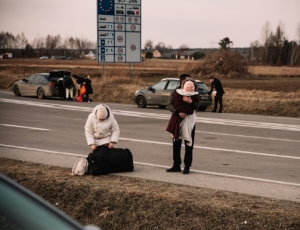The Danger of Community Failure: Conditions for Solidary Behaviour in Modern Market Societies
Year Group 2001/02
About the topic
The research theme group studied the role of solidarity in modern market societies. Solidarity can be conceived as a pattern of behavior within groups: helping others in need, contributing to common goods, resisting the temptation to breach agreements at the expense of others, taking not more than a “fair share” in situations in which costs and benefits are divided (sharing situations), and being willing to make up when things went wrong against one’s intentions (mishap situations). All these situations can be seen as different manifestations of social dilemmas where short-term benefits and costs have to be evaluated against long-term ones. Solidary behavior is not confined to individuals, but applies also to other social actors as organizations and governmental agencies.
The work of the research group focused on three areas:
the micro foundations of solidarity;
the link of the micro foundations of solidarity to the analysis of solidary behavior in various substantive fields, namely, informal settings (communities), markets, and collective decision making; and
the theory-guided development of designs and measurement instruments for large scale data analysis of solidary behavior. Two edited volumes will be the core publications of the research theme group. One is on The Governance of Relations in Markets and Organizations which is forthcoming as a special volume of Research in the Sociology of Organizations, a major yearbook in the field. The other core publication is Rational Choice Theorie in den Sozialwissenschaften – Probleme und Perspektiven and presents an encompassing survey of (applications of) the rational choice approach in sociology with a focus on problems of solidarity, trust, and cooperation. Next to these core publications, members of the research group have produced a sizeable number of articles in leading international journals and various Dutch journals as well as in a number of edited volumes. Another major activity of the research theme group was the international conference “Social Networks, Norms, and Solidarity – New Approaches to Cooperation”, held at NIAS (June 9-11, 2002). This conference brought together approximately 20 researchers, including outstanding senior scholars from various European Countries and the US as well as various younger colleagues from the Netherlands and abroad and was considered as very inspiring and successful by all participants.
Themegroup participants
-

Brüderl, J.
Year Group 2001/02 -

Deemen, A.M.A. van
Year Group 2001/02 -

Lindenberg, S.M.
Year Group 2001/02 -

Macy, M.W.
Year Group 2001/02 -

Raub, W.
Year Group 2001/02 -

Stokman, F.N.
Year Group 2001/02 -

Voss, T.R.F.
Year Group 2001/02 -

Wittek, R.P.M.
Year Group 2001/02



